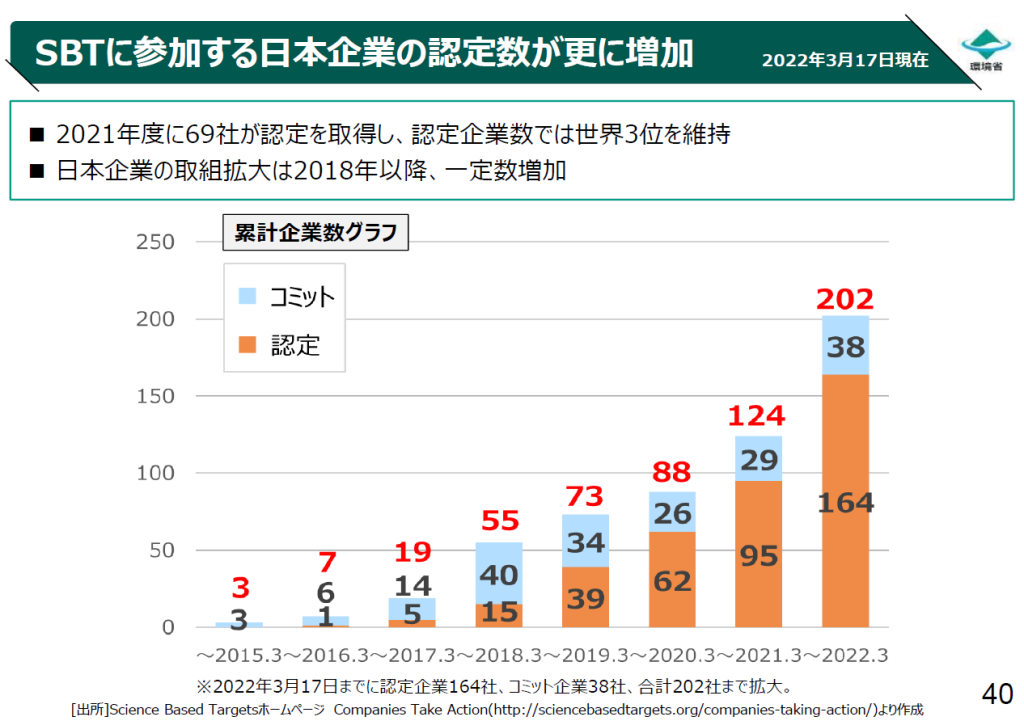SBT(Science Based Targets)とは︖
パリ協定が求める⽔準と整合した、企業が設定する温室効果ガス排出削減⽬標のことであり、国内でも環境省が推奨するためにSBTに申請する企業は増加の一途である。
グローバルに事業展開する大企業においては、ESG投資との関連もあり、SBTに取り組むことは必須とも言える。
しかしながら、SBTはコミットメントはすぐできるが、その後、認定を受けて、それを維持するのは困難を伴う、年率4.2%以上のCO2排出量の削減が求められる。
既に、認定を受けている日本企業も多いが、削減する部分がスコープ3ばかりになっているのだとしたら、ちょっとインチキじゃないかという思いもある。

環境省は、SBTには中小企業版があるかのように説明をしているが、これは日本の法律で定められた中小企業とは全く定義が異なっている。

この内容を見ると、すぐにでも申請できそうな気になる中小企業も多いと思う。
実際のところ、グリーンテクノロジーにも中小企業からのSBT認定に関する相談が複数来た。そこで、よく原文を調べてみると、
How does the SBTi define an SME?
For the purposes of target validation by SBTi, an SME is defined as a non-subsidiary,
independent company with fewer than 500 employees. Note that this does not include
Financial Institutions (FIs) and Oil & Gas (O&G) companies (read further on FAQ 13). The
SBTi exclusively considers the above criteria to classify an entity as an SME and only
entities that fall within this definition can use the streamlined route for SMEs. Country-level
definitions, emissions intensity, market capitalization, or any other considerations are not
used by the SBTi to classify this type of entity. The standard commitment and/or target
validation routes are not available to companies that fall under our SME definition.
となっており、連結子会社も従業員が500人以上の企業も対象外なのだ。
今回、環境省がSMEを中小企業と訳したことで、大きな混乱を与えているのではないだろうか?